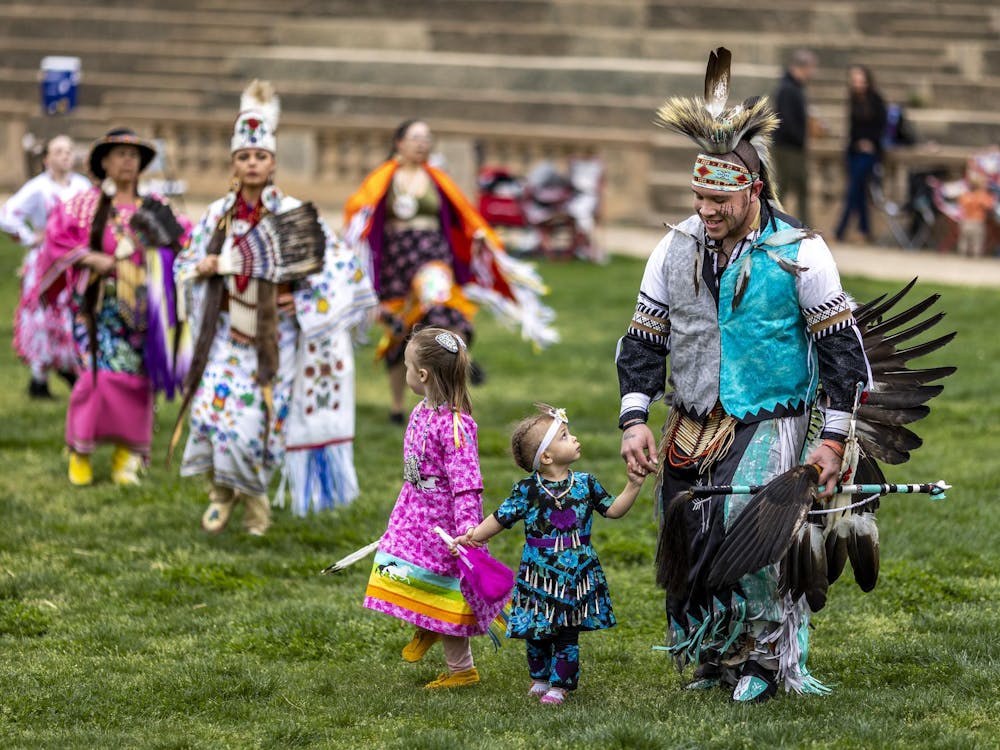When I was around nine years old, I fell in love for the first time. I fell in love with the National Football League.
There’s no sight in the world quite like a quarterback dropping back, waiting, searching, waiting, tensing his shoulder, leaning into it and heaving the ball into the sky. There’s no suspense like watching the ball fly as the receiver and the defender race underneath it, jockeying for position, arms outstretched. There’s no feeling so satisfying as the ball hitting the exact pair of hands for which it was intended and sticking there like a gnat on flypaper. The bomb is the greatest moment in sports, the apex of power, timing, swagger and grace. When I was a kid I lived in Philadelphia, and many of my happiest — and saddest — memories before age 13 involve longtime Eagles quarterback Donovan McNabb.
But growing up, I loved more than just the game itself. I loved the rules, in all their arcane, convoluted glory. I loved the instant replays, the silly drama of a coach pulling a little, red hanky out of his sock and throwing it on the field. I loved how first downs are measured by a couple of guys with a chain attached to some big sticks. In a sport where players have radios inside their helmets and holographic lines are projected on the field, close calls are still determined by a system resembling 1600s land surveying techniques.
I loved learning about shotgun and wildcat and the subtle difference between a post route and a fade. I loved intentional grounding, tackle eligible, two-point conversions and onside kicks and safeties. This is the paradox at the heart of what makes football so great — it is a sport played by the largest, fastest, strongest, meanest people in the world, but it’s built around a core of jargon and strategy as nerdy and impenetrable as Magic: the Gathering.
Despite my love for the game, however, I never came near a real football field. I was a skinny little kid — too introspective and studious to actually put on the pads. Besides, my parents were professors. They would have never let their kid go smash his head into other kids’ heads. Instead, they signed me up for flag football.
Flag football takes all of the violence out of the sport. Instead of pads and helmets, everyone wears a belt with plastic flags velcroed to the hips. Instead of tackling, defenders just pull the flag off the ball carrier’s waist, and he’s down. It’s played in elementary school gym classes around the country and pretty much nowhere else.
I was sorted on to a team coached by a balding, little man named Barnes. I don’t remember his first name, which is strange. I think we just called him Barnes. On the first day of practice, Barnes huddled up all of us kids under a tree by the side of the field. There were around a dozen of us on the team, aged 10 to 12. The dads loitered around the periphery, listening in.
“Alright,” Barnes began. “I was a coach in this league last year, and here’s what I learned. Basically, none of you can actually throw, and none of you can actually catch. Also, none of you are very good at pulling flags. So this year, our offense is going to be focused on YAC attack.”
“YAC,” Barnes continued, sensing skepticism, “stands for ‘yards after catch.’ We’re going to throw short, easy completions, and once you have the ball, you’re going to do a lot of spin moves. It’s almost impossible for you guys to pull a flag off when the runner is spinning. Kids like to go big, try to air it out, throw bombs. It doesn’t work.”
Everyone sort of nodded, still unsure.
Barnes said it again. “Short throws. Spin moves. YAC attack.”
We won every game we played that season.
Our team wasn’t the biggest or fastest. We didn’t have any ringers, nor any gigantic 12-year-olds who had already hit puberty. But thanks to Barnes, we dominated. In order to reinforce the YAC attack philosophy, Barnes actually went so far as to draw up a simple play-calling system. Each kid had a code name, and when the coach called that play, the corresponding kid would run one of a handful of specific routes and expect the ball.
Every other team basically just put the biggest kid in at QB and told everyone else to go run out and try to get open. Meanwhile, Barnes had us shouting code words, calling audibles and debating the merits of short hooks versus shallow crosses versus fade routes. We were football nerds, and we were winning like crazy.
Just last week, the Philadelphia Eagles, my lifelong favorite team, won the Super Bowl. The team’s victory was a triumph for football nerds everywhere. The Eagles’ coach, Doug Pederson, delivered a football nerd’s dream in the season’s final game. He took atypical risks on a number of key fourth-down situations. He used creative, unorthodox play-calling to put his inexperienced backup quarterback into a position to thrive. He ran an insane trick play at a crucial moment, resulting in that very same backup becoming the first quarterback to ever catch a touchdown pass in the Super Bowl.
The NFL is at an inflection point in its history. It’s impossible to watch the sport without acknowledging the horrendous physical toll the game exerts on the players. The sport’s racial dynamics are equally troubling, as an overwhelmingly number of black players are controlled by a body of coaches and owners that are overwhelmingly white. In recent years some of the league’s most prominent players have been guilty of a string of horrible domestic violence offenses. Make no mistake — football, more than any other sport in the country, needs to take a long hard look at itself if it wants to continue to exist in the next 50 years. It is impossible to defend the NFL on moral grounds.
Yet the sport remains essential for people across the country. Many Philadelphians have waxed eloquent about what the Super Bowl win means for them and for the city. It’s been a unifying force in a dark period, a blissful escape from the troubles of the real world. After 52 years of fanaticism, Philly fans have finally come out on top. I haven’t lived in Philadelphia since I was in middle school, so I’ll leave the eulogizing to the natives, but just watching from afar I’ve seen how positive the sport has been for the city.
I love football because it rewards all-consuming, wild-eyed enthusiasm. It’s about hitting people hard, yes, but it’s also about unabashed attention to detail, passion for the minutiae and obsessive knowledge of everything in the rulebook. In our culture, football is associated with meathead bullies in letterman jackets. I’ve known that portrayal to be unfair ever since my days with Barnes and his YAC attack. I love football because in football, believe it or not, the nerds win.





